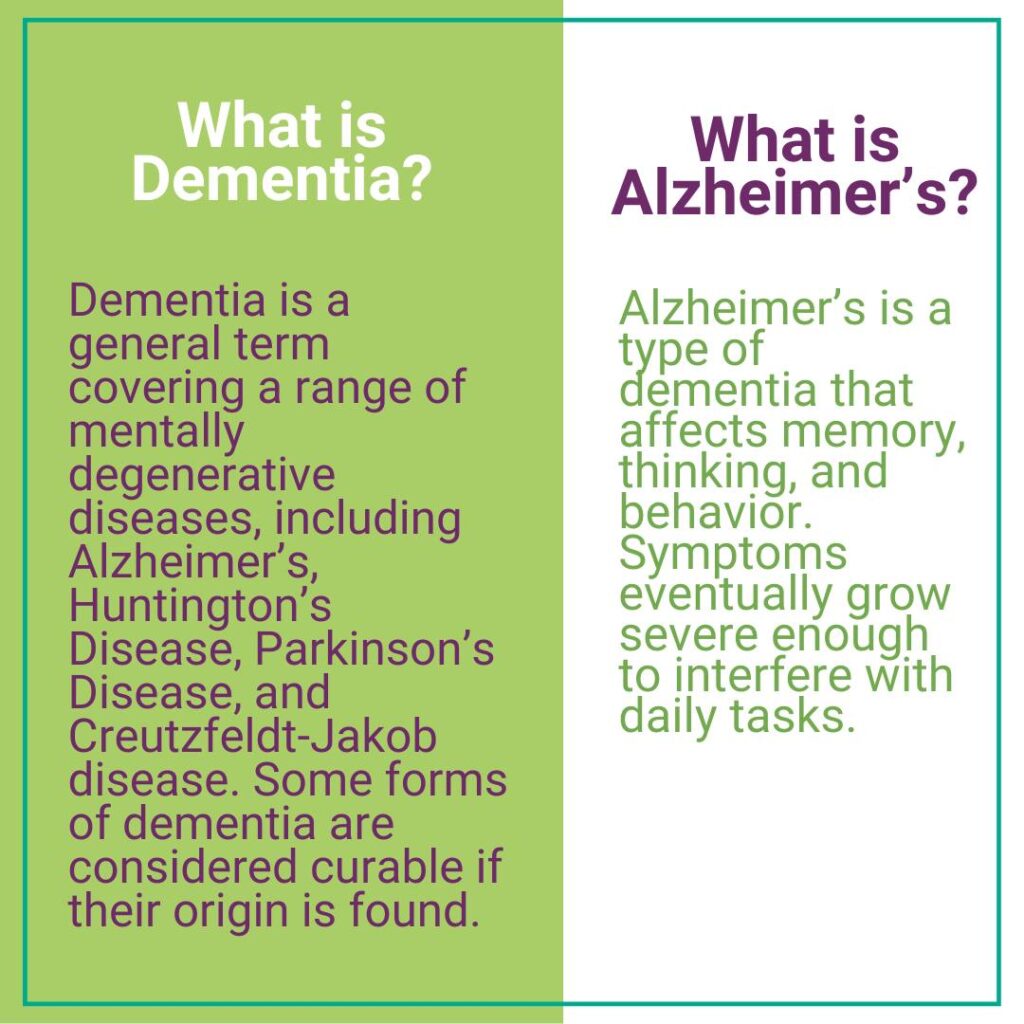
Spotting dementia early and providing personalized support at home is key. Dementia home care services offer tailored assistance that evolves with changing cognitive abilities, easing the burden on family caregivers and enhancing the well-being of those receiving care. This guide dives into the main types of dementia, early indicators and stages of progression, essential components of home care, support for caregivers and preventing burnout, planning for costs, and cutting-edge technologies—all designed to help families navigate each step of the care journey with confidence.
What Are the Different Types of Dementia and Their Key Characteristics?
Dementia is a group of neurological conditions marked by a gradual decline in cognitive abilities, with each type presenting unique causes and symptoms that influence how home care is approached. Understanding these distinctions allows caregivers to customize routines, activities, and safety measures to suit each person’s specific needs.
| Type of Dementia | Key Characteristic | Care Consideration |
|---|---|---|
| Alzheimer’s Disease | Progressive memory loss and challenges with reasoning | Incorporate memory aids and regular cognitive exercises |
| Vascular Dementia | Cognitive difficulties due to reduced blood flow to the brain | Manage vascular health factors and maintain structured routines |
| Lewy Body Dementia | Visual hallucinations and issues with movement | Offer sensory support and implement fall prevention strategies |
| Frontotemporal Dementia | Early changes in behavior and difficulties with language | Employ specialized communication techniques |
| Mixed Dementia | A combination of multiple underlying conditions | Coordinate comprehensive treatment and care plans |
Understanding the Various Types of Dementia and Their Symptoms
Dementia encompasses several distinct types, each with its own causes and symptoms. These include Alzheimer’s disease, vascular dementia, Lewy body dementia, frontotemporal dementia, and mixed dementia. Recognizing these differences is crucial for tailoring effective home care strategies.
What Is Alzheimer’s Disease and How Does It Affect Patients?
Alzheimer’s disease develops when amyloid plaques and tau tangles disrupt brain cell connections, leading to memory loss, disorientation, and problems with problem-solving. Early signs often include forgetfulness and misplacing items, while later stages involve significant communication challenges and a need for assistance with daily tasks. Care strategies involve establishing predictable routines, labeling household items to aid orientation, and using reminiscence therapy to support cognitive function.

How Does Vascular Dementia Impact Cognitive Function and Care Needs?
Vascular dementia arises from reduced blood flow to the brain, often following strokes or damage to small blood vessels, leading to abrupt or gradual cognitive declines. Individuals may experience difficulties with planning, attention, and slowed thinking, frequently accompanied by mood changes. Home care for vascular dementia focuses on monitoring cardiovascular health, ensuring adherence to blood pressure management plans, and providing structured cognitive exercises to maintain mental sharpness and prevent further decline.
What Are the Symptoms and Care Considerations for Lewy Body Dementia?
Lewy Body Dementia is characterized by the buildup of alpha-synuclein protein clumps in brain cells, resulting in visual hallucinations, movement difficulties similar to Parkinson’s disease, and fluctuating levels of alertness. Patients benefit from environments with good lighting to minimize triggers for hallucinations, mobility aids to reduce the risk of falls, and gentle cognitive stimulation to help manage attention lapses.
How Does Frontotemporal Dementia Differ in Behavior and Language Effects?
Frontotemporal Dementia affects the frontal and temporal lobes of the brain, leading to early changes in personality, social behavior, and language abilities. Behavioral changes might include impulsivity or a lack of interest, while language-related forms cause progressive difficulties with speech. Home care requires clear, simple communication methods, behavioral management plans, and consistent daily schedules to minimize anxiety and confusion.
What Is Mixed Dementia and How Does It Influence Home Care?
Mixed Dementia occurs when multiple conditions, often Alzheimer’s and vascular dementia, coexist, compounding memory, reasoning, and motor symptoms. Home care plans must integrate cardiovascular health management, memory support tools, and flexible adjustments as symptoms change. Ongoing medical oversight and multidisciplinary therapies ensure comprehensive support across all affected cognitive areas.
What Are the Signs and Symptoms of Dementia to Recognize Early?
Identifying dementia early means noticing subtle changes in cognition and behavior that go beyond typical aging. Recognizing these initial signs allows for prompt diagnosis, enabling families to access appropriate therapies and home care services when they can be most impactful.
What Are the Common Early Signs of Memory Loss and Confusion?
- Forgetting recent information, like appointments or conversations
- Misplacing everyday items and sometimes blaming others
- Asking the same questions or repeating statements within a single conversation
- Experiencing disorientation even in familiar surroundings
Recognizing the Early Signs and Symptoms of Dementia
Early detection of dementia involves noticing subtle cognitive and behavioral shifts. Common early indicators include memory lapses, challenges with familiar tasks, confusion about time and place, and changes in mood or personality.
These signs suggest the need for cognitive assessment and a care plan that supports orientation and memory.
How Do Cognitive and Behavioral Changes Signal Dementia Progression?
- Impaired judgment in managing finances or personal decisions
- Mood swings, increased irritability, or social withdrawal
- Difficulty following instructions for multi-step tasks
- A noticeable decrease in initiative or a sense of apathy
Observing these changes helps guide the gradual increase in home care support and safety measures.
When Should You Seek a Professional Diagnosis for Dementia?
Persistent memory lapses, confusion that disrupts daily life, or noticeable shifts in personality warrant a medical evaluation. An early diagnosis provides access to treatment options, legal and financial planning resources, and personalized home care services that help maintain independence and a good quality of life.
How Do the Stages of Dementia Progress and Affect Home Care Needs?
Dementia progresses through distinct stages, each requiring adjustments in the level of support, supervision, and therapeutic activities. Aligning home care services with the challenges of each stage helps maintain the patient’s dignity and safety.
What Are the 7 Stages of Dementia and Their Characteristics?
- No Impairment – No noticeable symptoms in daily life
- Very Mild Decline – Minor memory lapses with no impact on daily functioning
- Mild Decline – Noticeable forgetfulness affecting concentration
- Moderate Decline – Difficulty with complex tasks and problem-solving
- Moderately Severe Decline – Needs assistance with Activities of Daily Living (ADLs) and personal care
- Severe Decline – Significant memory loss; requires almost complete support
- Very Severe Decline – Loss of verbal abilities; complete dependence on others
Stages of Dementia and Evolving Home Care Requirements
Dementia progresses through predictable stages, each necessitating changes in support and activities. These stages range from no impairment to very severe decline, with care needs evolving from cognitive engagement to full assistance with daily tasks.
How Does Care Change from Mild to Severe Dementia Stages?
Caregiving needs evolve as cognitive abilities decline:
- Mild Stages: Focus on cognitive stimulation, memory aids, and social interaction
- Moderate Stages: Introduce structured daily routines, supervision for ADLs, and safety modifications
- Severe Stages: Provide complete assistance with personal care, skilled nursing support, and 24/7 supervision
What Activities of Daily Living (ADLs) Are Affected at Each Stage?
| Activity of Daily Living (ADL) | Early Stage Impact | Late Stage Impact |
|---|---|---|
| Personal Hygiene | May need occasional reminders | Requires full assistance |
| Dressing | Can choose own clothes | Needs help with clothing and fasteners |
| Eating | Minor supervision needed | Requires hands-on feeding and dietary planning |
| Mobility | May need supervision while walking | Requires assistance with transfers and fall prevention |
As the need for support increases, home modifications and trained caregivers become essential for safety and well-being.
What Are the Benefits and Components of Dementia Home Care Services?
Dementia home care services offer comprehensive support within the comfort of a familiar environment, blending professional expertise with compassionate, personalized routines. This approach enhances patient comfort, reduces stress, and helps maintain independence for longer periods compared to institutional settings.

If you’re looking for trusted, compassionate in home dementia care in Bergen County, call A Place At Home – Westwood today at (201) 890-5789 or contact us online to schedule a free consultation.
How Does Personalized In-Home Care Support Dementia Patients?
Personalized care plans are developed through thorough assessments of cognitive function, physical capabilities, and personal history. By incorporating favorite activities, familiar music, and customized communication methods, in-home care strengthens emotional bonds and stimulates cognitive function without causing distress.
- Customized daily schedules
- Specialized cognitive engagement activities
- Reminders and assistance with medications
- Companionship and emotional support
These tailored approaches encourage engagement and reduce anxiety.
What Types of Services Are Included in Dementia Home Care?
- Personal care: assistance with bathing, dressing, and toileting
- Companionship: social interaction and engagement
- Medication management: ensuring safe administration and monitoring
- Cognitive support: memory exercises and brain-training activities
- Respite care: temporary relief for family caregivers
- Homemaking: meal preparation and light housekeeping
These combined services create a well-rounded support system addressing medical, cognitive, and emotional needs.

How Does Home Care Improve Quality of Life Compared to Other Care Settings?
- Flexible scheduling that respects the patient’s natural rhythms
- One-on-one attention that minimizes overstimulation
- Reduced risk of infections compared to group settings
- Familiar surroundings that promote emotional comfort
Individuals often experience fewer behavioral challenges and maintain a greater sense of independence.
Advantages of Home Care for Individuals with Dementia
Home care provides numerous benefits for dementia patients, including a familiar setting, personalized attention, and a lower risk of infection. It also supports independence and enhances overall quality of life compared to institutional care options.
What Is Respite Care and How Does It Support Family Caregivers?
Respite care offers scheduled breaks for family caregivers through temporary in-home assistance. By providing backup support for overnight stays, weekend coverage, or emergency situations, respite services help prevent caregiver exhaustion and allow families to rest and recharge, making long-term home care more sustainable.
How Can Dementia Caregivers Access Support and Prevent Burnout?
Caring for someone with dementia can be physically and emotionally demanding. Accessing dedicated support systems and prioritizing self-care are essential for maintaining caregiver well-being and ensuring consistent, high-quality care for the person with dementia.
What Resources Are Available for Dementia Caregiver Support?
- Local and online support groups for sharing experiences
- Professional counseling and therapy services
- Educational workshops and webinars on dementia caregiving
- Care coordination services to help navigate medical and social systems
Support and Resources for Dementia Caregivers
Caregivers for individuals with dementia can find various resources, including support groups, counseling, educational sessions, and care coordination services. These resources help caregivers manage stress and avoid burnout.
Connecting with these resources can reduce feelings of isolation and build practical caregiving skills.
How Can Caregivers Manage Stress and Avoid Burnout?
- Scheduling regular breaks and utilizing respite care services
- Practicing mindfulness, deep breathing exercises, or yoga
- Engaging in regular physical activity and social activities
- Seeking support from peers or professional counselors
Prioritizing self-care helps restore energy and emotional resilience.
What Training and Certification Options Exist for Dementia Caregivers?
- Certified Dementia Practitioner (CDP) programs
- Alzheimer’s Association training courses
- Community college certificate programs in elder care
- Online certifications focusing on best practices in memory care
Formal training can boost confidence and improve the quality of care provided.
What Is the Cost of Dementia Home Care and How Can Families Plan Funding?
Understanding the financial commitment involved in long-term dementia care empowers families to make informed decisions and secure sustainable funding solutions.
How Much Does In-Home Dementia Care Typically Cost?
In-home dementia care services generally range from $25 to $40 per hour, with full-time support potentially costing $3,000 to $6,000 per month. Costs can vary based on:
- The level of care required and the complexity of needs
- Geographic location and the provider’s qualifications
- The frequency and duration of care visits
Understanding the Costs of Dementia Home Care
The cost of in-home dementia care varies depending on the level of service, location, and provider. Families can explore financial aid options like Medicare, Medicaid, and long-term care insurance to help manage expenses.
What Financial Assistance and Insurance Options Are Available?
Families can explore:
- Medicare and Medicaid waiver programs for long-term care services
- Veterans Affairs benefits for eligible veterans
- Long-term care insurance policies that cover in-home support
- Grants and subsidies from non-profit organizations
Combining various funding sources can help reduce out-of-pocket expenses.
How Can Families Budget for Long-Term Dementia Care?
- Estimate care costs over several years
- Compare the expenses of in-home care versus residential memory care facilities
- Establish a dedicated savings fund or trust
- Consult with financial advisors specializing in elder care planning
- Investigate community resources and available benefit programs
Proactive financial planning ensures continuous support throughout all stages of dementia.
How Is Technology Enhancing Dementia Home Care Services?
Technological advancements are transforming home dementia care by improving monitoring, engagement, and safety, providing caregivers with real-time information and offering patients stimulating activities.
What Are the Latest Technology Solutions for Dementia Care at Home?
- AI-driven monitoring systems that detect changes in daily routines
- Wearable health trackers that monitor heart rate, sleep patterns, and activity levels
- Telehealth platforms that connect families and healthcare providers remotely
- Automated medication dispensers to ensure timely and accurate dosing
These tools support proactive care and provide peace of mind.
How Do Cognitive Engagement Tools Support Dementia Patients?
- Apps designed to improve memory and attention with gradually increasing difficulty
- Interactive games that exercise executive functions
- Virtual reality experiences that recreate familiar environments
- Brain-training devices offering combined audio, visual, and tactile feedback
Regular use of these tools can help maintain cognitive abilities for longer.
What Safety Technologies Help Monitor and Protect Dementia Patients?
Integrating safety technology into the home environment adds an extra layer of protection:
| Technology | Function | Benefit |
|---|---|---|
| Motion Sensors | Detect unusual movement patterns | Alerts caregivers to potential wandering risks |
| GPS Trackers | Real-time location tracking | Enables quick location if disorientation occurs |
| Emergency Alert Systems | One-touch calls for assistance | Provides immediate help during falls or emergencies |
| Smart Home Devices | Automated lighting, locks, and temperature control | Reduces confusion and helps prevent accidents |
By combining expert care, personalized routines, caregiver support, financial planning, and innovative technologies, dementia home care services empower families to provide compassionate care at every stage. With informed preparation and access to the right services, individuals can maintain their dignity in a familiar setting, while caregivers can sustain their own well-being through structured relief and professional guidance.
Looking for trusted in-home dementia care in Bergen County?
Reach out to A Place At Home – Westwood today at (201) 890-5789 or contact us online to schedule your free, no-obligation consultation. Compassionate support for your loved one starts here.






